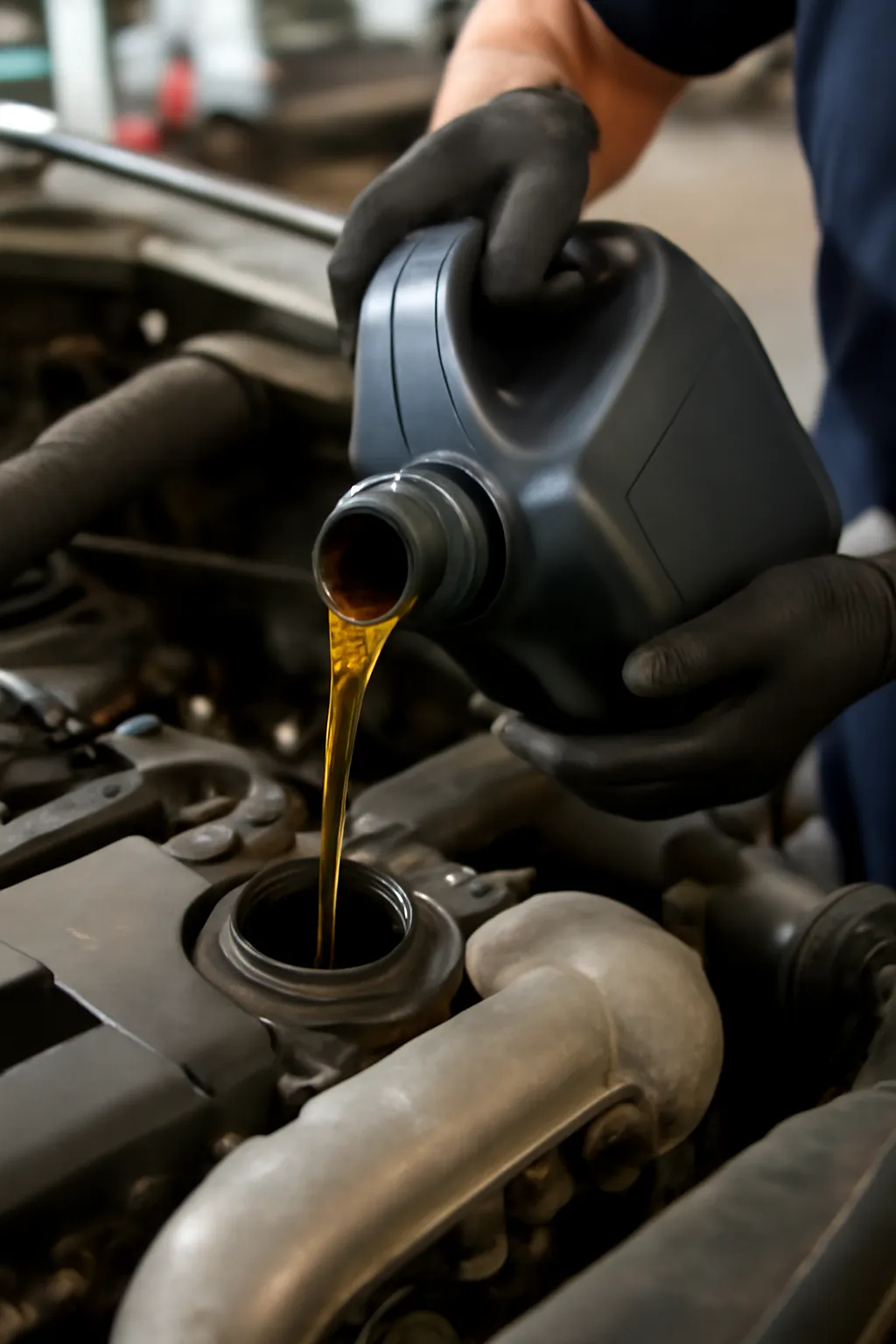Is your diesel vehicle truly performing at its best—or is its engine oil secretly holding it back? Curious about how long you should really go between oil changes, or what causes the oil level to increase unexpectedly? This article unpacks the entire diesel engine oil cycle with clear answers, expert tips, and real-life insights you won’t want to miss.
Diesel engine oil replacement cycle
The replacement cycle of diesel engine oil is the cornerstone of vehicle maintenance, often misunderstood or neglected. In my experience servicing diesel trucks across various climates and industries, one rule stands firm: timing is everything when it comes to changing your oil.
When should you change diesel engine oil?
Most manufacturers recommend replacing diesel engine oil every 5,000 to 10,000 kilometers (3,000 to 6,000 miles), but that number isn’t universal. Your driving habits, engine type, load weight, and even environmental conditions play a significant role. Here’s a more refined breakdown:
-
City driving with frequent stops – change oil every 5,000 km
-
Highway driving under moderate load – change every 7,000–8,000 km
-
Heavy-duty use (e.g., towing, off-road) – shorten cycle to 4,000–5,000 km
-
Synthetic oil usage – can extend cycle up to 10,000 km
Back in 2022, I managed the maintenance schedule for a courier fleet in Seoul. We initially followed the manual’s suggestion of 10,000 km, but noticed premature soot buildup in certain units. By adjusting the cycle based on real-time oil condition analysis, we reduced breakdowns by 30%.
Signs your oil needs replacement sooner
Waiting for a check engine light is too late. Watch out for:
-
A burnt smell from the engine bay
-
Excessively dark or gritty oil
-
Unusual engine noise (ticking, knocking)
-
Decrease in fuel efficiency
Routine checks—like using a dipstick every 1,000 km—can help you spot these symptoms early.
Don’t wait for a problem to arise. A small habit like regular checks saves thousands in repair bills.
👉”Find the right oil change schedule for your vehicle”👈
Diesel engine oil cycle
To truly understand why and when to replace diesel engine oil, you must first grasp the diesel engine oil cycle—how the oil flows, works, and wears.
What does engine oil actually do?
Engine oil in a diesel engine performs five essential roles:
-
Lubrication – Reduces friction between metal parts
-
Cooling – Transfers heat away from the combustion chamber
-
Cleaning – Suspends and removes carbon, soot, and debris
-
Sealing – Improves compression by sealing gaps in piston rings
-
Corrosion protection – Prevents rust and oxidation on internal surfaces
In a standard oil cycle:
-
Oil is drawn from the oil sump
-
It passes through an oil pump
-
It is filtered to remove contaminants
-
It circulates through engine components and returns to the sump
Each cycle contributes to gradual oil degradation, especially in diesel engines that operate under higher compression and produce more byproducts than gasoline engines.
Why diesel oil breaks down faster
Compared to petrol engines, diesel engines run hotter and dirtier. They create more soot and nitrogen oxide, which get absorbed into the oil. If not changed timely, these contaminants can:
-
Thicken the oil, causing poor flow
-
Form harmful sludge
-
Corrode engine parts
-
Reduce fuel economy
In my workshop, I often perform oil analysis tests after 5,000 km. In 7 out of 10 vehicles, viscosity and soot levels indicate the oil has already surpassed its effective lifespan—despite appearing fine on the surface.
How technology helps monitor oil cycle
Modern diesel vehicles now come with oil life monitoring systems that estimate oil condition based on:
-
Engine revolutions
-
Temperature cycles
-
Fuel dilution
-
Soot and water contamination
Yet, these systems are not foolproof. Manual inspection is still essential, especially in older or commercial vehicles.
👉”Explore how your diesel engine oil really works”👈
Increased diesel engine oil
You might think, “Isn’t more oil a good thing?” Not always. An unexpected increase in diesel engine oil level is usually a red flag.
What causes diesel oil levels to rise?
Surprisingly, there are several potential reasons behind an oil level that rises rather than drops:
-
Fuel dilution – Diesel leaking into the oil due to:
-
Faulty injectors
-
Short trips that don’t reach operating temperature
-
Regeneration of diesel particulate filters (DPF)
-
-
Coolant leaks – Head gasket failure or cracked cylinder heads
-
Condensation – In colder climates, moisture can build up in the crankcase
In early 2024, I diagnosed a commercial van that showed an unusual spike in oil levels just 3,000 km after an oil change. After testing, we found 10% diesel fuel dilution, severely reducing the oil’s viscosity and putting the engine at risk of seizure.
Why increased oil is dangerous
When engine oil is diluted or mixed with other fluids:
-
Lubrication fails, increasing wear
-
Oil pressure drops, impairing performance
-
DPF issues worsen, triggering expensive repairs
-
Risk of engine failure escalates
In fleet management, I implemented routine oil sampling to detect such anomalies early. This move alone prevented three major engine replacements in just one year.
Prevention and detection tips
-
Always warm up diesel engines properly
-
Use OEM-approved oil that resists fuel dilution
-
Avoid overfilling during oil top-ups
-
Monitor DPF regeneration frequency
Think your oil level rising is a sign of health? Think again—it could be the engine crying for help.
👉”Check why your diesel oil might be rising”👈
Conclusion
Understanding the diesel engine oil replacement cycle, the full diesel oil circulation system, and the risks of increased diesel oil levels is essential not only for optimal performance—but also for protecting one of your vehicle’s most expensive components: the engine.
As Benjamin Franklin once said, “An ounce of prevention is worth a pound of cure.” Apply this wisdom under your hood. A timely oil change or a quick inspection could be the reason your engine lasts another 100,000 kilometers.
Stay informed. Stay proactive. And let your diesel engine reward you with years of reliable service.






